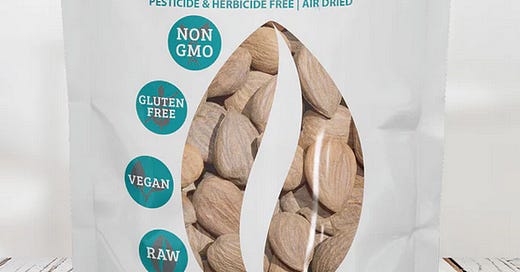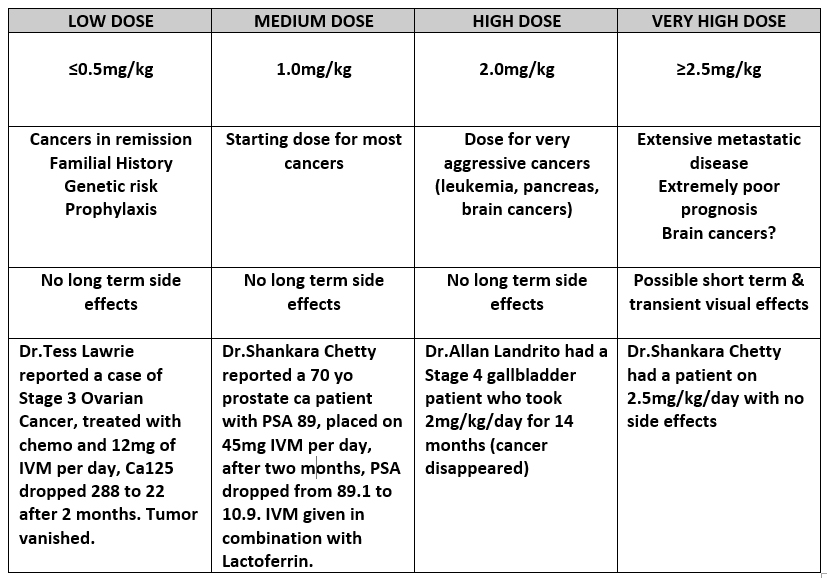Cancer Prevention-Vitamin B17 & Ivermectin
Apricot Seeds: World Without Cancer: The Story of Vitamin B17 & Ivermectin
This is not medical advice!
Please do your own research. I’m always happy to give safe advice and report what I do for my own health, but everybody needs to study the facts.
World Without Cancer
Last year, I read the book ‘World Without Cancer’. It was an eye-opener, to say the least. Cancer is a leading cause of death in the US, and even though billions are spent to fight it, it continues to kill millions. Now, we’re seeing a massive increase in all types of cancers, and some of them are the ‘turbo’ variety. The corrupt medical system doesn’t want a cure for cancer. They want to cut, burn, and poison. As my cancer research friend from the U of M says, “They want to bleed you dry before you die.”
My mother, grandfather, and multiple aunts and uncles have died from cancer. I decided I needed to do more to prevent cancer from killing me. Eating apricot seeds is one of many supplements and lifestyle strategies I use to try and avoid the dreaded ‘C’ word.
Apricot Seeds
By the time I was 30 pages into the book (World Without Cancer by G. Edward Griffin), I ordered myself some apricot seeds. I eat a minimum of 20-30 seeds per day. A $37 bag lasts nearly six months. Apricot seeds contain vitamin B17 (amygdalin), which many in the natural health world believe can be a component of cancer prevention. B17 contains powerful immunity-boosting properties to strengthen your body’s natural defenses. The Hunza people (an ethnic group near Pakistan) eat as many as 200 apricot seeds as a snack, and the apricot is their prized food. They have essentially zero cancer. Dr. John Richardson was putting cancer into remission in hundreds of patients in the 60s and 70s until the FDA tried to stop him. The book ‘World Without Cancer’ tells these stories and the story of cancer care corruption.’
On average, I eat about 30 apricot seeds per day. I started slow by eating 12 per day, three at a time. I now eat about 6-8 at a time, three or four times daily.
I’ve heard reports that the seeds can lower blood pressure, which is a good effect for me. However, you should monitor your BP numbers for a few days if you already have low blood pressure. I’ve also heard of some folks having stomach discomfort after eating the seeds, so that’s another reason to start slowly.
Watch this episode of The Truth Expedition, where I talk with John Richardson Jr., the son of the late Dr. Richardson and president of the RNC Store.
You can get laetrile capsules (amygdalin), apricot seeds, and the book ‘World Without Cancer’ at rncstore.com
Use TRUTHEXPEDITION at checkout for 10% off your entire purchase.
One Local Anecdotal Story
I recently spoke to a lady here in MN who was diagnosed with aggressive breast cancer a few years ago. Her doctor told her that she needed a double mastectomy and chemotherapy. She declined and decided to try apricot seeds. She went back to the doctor a year later, and, to his amazement, she had no signs of cancer. There is no way to prove that the apricot seeds were the cure, but this is an amazing story.
I should also mention that there is more to treating cancer with apricot seeds than simply eating the seeds. You’ll learn more about the strategies by reading World Without Cancer. For instance, Dr. Richardson's regimen included proteolytic enzymes. Again, at the risk of being redundant, DO YOUR OWN RESEARCH!
But amygdalin (B17) contains cyanide, right? But…
Several anticancer mechanisms of amygdalin have been proposed. One hypothesis involves beta-glucosidase (β-glucosidase) activity, an enzyme upregulated in cancerous cells. Amygdalin, containing two glucose molecules, is metabolized by cancer cells, releasing benzaldehyde and hydrocyanic acid, causing apoptosis or cell death in cancer cells.
While possessing potential anticancer properties, amygdalin has not been successfully developed by pharmaceutical companies into a patentable and profitable drug, so it’s no surprise that the white coat cult will tell you B17 will kill you. Cyanide is indeed released by fruits containing amygdalin, but that cyanide is only released in cancer cells. This process is facilitated by β-glucosidase, which acts as the unlocking enzyme for amygdalin molecules, and β-glucosidase can only be released by cancer cells. The liver's detoxification function neutralizes free cyanide molecules by combining them with sulfur, rendering them harmless. If you have no cancer cells, the cyanide will not be released in your body but will be neutralized in the liver and expelled from the body. This process is explained in full in the book World Without Cancer.
I copied the following from a Bioregulatory Medicine Institute article:
“Cases of death from eating apricot kernels are extremely rare, and I found only three reports, all involving children. These incidents, often cited in anti-Laetrile materials, include a report by Sayre and Kaymakcalavu (1964) stating that two children in Central Turkey died from cyanide poisoning between 1957 and 1962 after consuming apricot kernels. Lasch and Shawa (1981) reported two more child deaths in Gaza, where one group had been "feasting on apricot kernels," and another had eaten a sweet made from the kernels. In 2011, a 28-month-old girl in Turkey allegedly died after eating ten apricot kernels. However, these cases provide limited information on the lethal dose of apricot kernels, and notably, only instances from Turkey and Gaza are reported as fatalities in professional literature.
*People have consumed plants with cyanogenic glycosides, like apricot kernels, for thousands of years.
Despite tens of thousands worldwide purchasing and presumably consuming apricot kernels, reports of toxicity are rare in professional literature. This raises questions about the rarity of reports, especially when anti-Laetrile groups are eager to highlight the few that exist. The financial and patent-related motives of the pharmaceutical industry may be influencing the perception of apricot kernel toxicity, contrasting with well-established but toxic cancer treatments.”
Here is a link to the full article.
Ivermectin for Cancer
There are hundreds of anecdotal reports of people curing their cancer with ivermectin, and there is a solid body of research describing how ivermectin could be helpful in various cancers. A study titled “Gene signatures to therapeutics: Assessing the potential of ivermectin against multiple myeloma” is compelling. This study talks about how ivermectin will target cancer cells. This study presents information on treating bladder cancer with ivermectin. This study discusses ivermectin-induced autophagy, which is the process by which the body gets rid of damaging cells. This study talks about the many different possible uses of ivermectin beyond a simple anti-parasitic drug.
I recently wrote an article about ivermectin for cancer, which you can read by clicking the hyperlink.
Potential Dosing With Ivermectin
Again, this is not medical advice, and anybody choosing to use off-label medications should consult a good doctor (like a provider at Leading Edge Clinic-Dr. Pierre Kory)
The Leading Edge Clinic is one of four clinics in the US participating in an observational study that will follow patients who choose to utilize alternative therapies for various cancers. I have high hopes that these alternative therapies will extend and save lives!
Of note, Leading Edge Clinic is not utilizing laetrile/apricot seeds as part of the observational study. The opinions regarding apricot seeds within this article are my own and do not reflect the views of the amazing providers at the Leading Edge Clinic.






Great info. What would be an typical amount of ivermectin for prevention? Just an example, not medical advice.